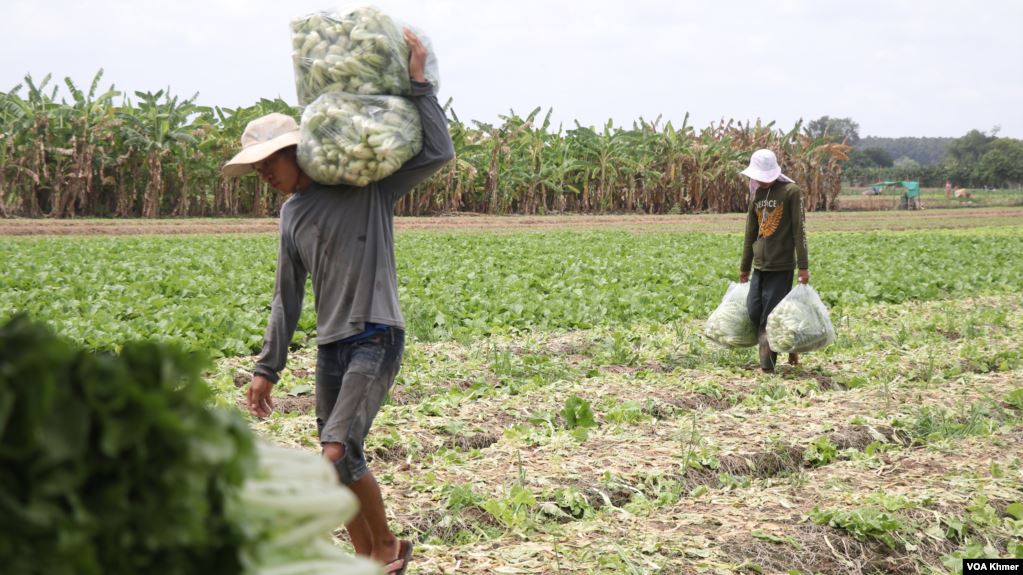Hunger and the pandemic—the importance of information

The coronavirus pandemic has negatively impacted global food supply chains, humanitarian access, and the global economy, leaving millions of people hungry or food insecure.
The awarding of the 2020 Nobel Peace Prize to the United Nations World Food Program is indicative of the growing need around the world.
However, one issue that often gets overlooked when examining hunger issues, is the free flow of information within food-insecure areas. And as governments struggle to respond to the multifaceted impact of the pandemic, some are loath to admit hunger exists under their purview.
The networks of the U.S. Agency for Global Media are providing accurate and unbiased information that is proving valuable to audiences concerned with growing food security issues.
Food Shortages
For example, Turkmen President Gurbanguly Berdymukhamedov reprimanded two of his own ministers following a series of Radio Free Europe/Radio Liberty (RFE/RL) reports on the worsening food crisis in Turkmenistan, as the country’s economy continues to plunge in light of the pandemic. RFE/RL Azatlyk has regularly reported about the pandemic’s adverse impact on the already-ailing Turkmen economy, including worsening of the food crisis with most basic staples like flour, oil, eggs vanishing from the so-called state stores.
In Cuba, Radio Televisión Martí reported that when the city of Ciego de Ávila became a coronavirus hot spot, residents were isolated and short on food, medicines and cleaning products. After residents took to the streets in protest, local government entities in Ciego de Ávila distributed food to residents.
As cases increased in Havana in early September, the Martís reported on fines established by the Cuban authorities for curfew violations regulations. The fines, which may be as much as 3,000 pesos, compounded the residents’ existing challenges that include financial hardships due to the COVID-19 outbreak and a growing food shortage in the city
On the first day of a citywide quarantine in Moscow, Current Time discussed whether or not Russia should expect food shortages and how farmers from the Pskov region were adapting. The network also helped audiences navigate food shopping to prepare for the lockdown, especially in light of a temporary halting of the exportation of buckwheat and other cereals.
Likewise, Voice of America looked at food shortages amid the pandemic in Venezuela and produced an explainer on the type of food products that can be bought with the minimum monthly salary of $5. The article attracted almost 4,000 page views within just a few days.
In Laos, Radio Free Asia reported on the rising prices for essential foodstuffs in village markets, made worse by the growing unemployment as a result of the COVID-19 pandemic.
And in sub-Saharan Africa, VOA audiences learned about how the precarious futures brought on by food shortages, poverty, and school closures due to the pandemic are causing some girls to prioritize marriage over education.
Exposing Food Vulnerabilities
In some places, the pandemic hasn’t resulted in food shortages, but it has illuminated an interdependence that may have been overlooked.
VOA’s Khmer Service reported on statements by civil society groups and agriculture experts saying that while Cambodia’s food security was not severely impacted by the coronavirus-related closure of the Cambodia-Vietnam border, they believe the pandemic should be a wake-up call to strengthen domestic agricultural production and processing capabilities. Cambodia imports a large amount of produce – especially fresh fruits and vegetables – from its neighbor.
On the other hand, as Alhurra reported, Iraqi farmers are seeing the pandemic in a different light – as imports dried up because of the health crisis, farmers were able to feed their families from food that was locally sourced. Before the pandemic, Iraqis relied heavily on Iran and Turkey as a source of food, while now they are turning to their fellow citizens.
Neighbors Helping Neighbors
Even as governments struggle to adapt to changes to local and global supply chains, communities and individuals are stepping in to help, and their stories are being told by USAGM networks.
The RFE/RL Russian Service’s Signs of Life documentary project examined the struggles of an Uzbek national who delivers food during the pandemic in Moscow.
VOA reported on a savvy baker in California helping both struggling restaurants and the old and poor by connecting food businesses with those in need.
Alhurra reported on activists in Lebanon launching a social media initiative to help those who need food and on relief caravans in Mauritania delivering food to secluded towns and villages
